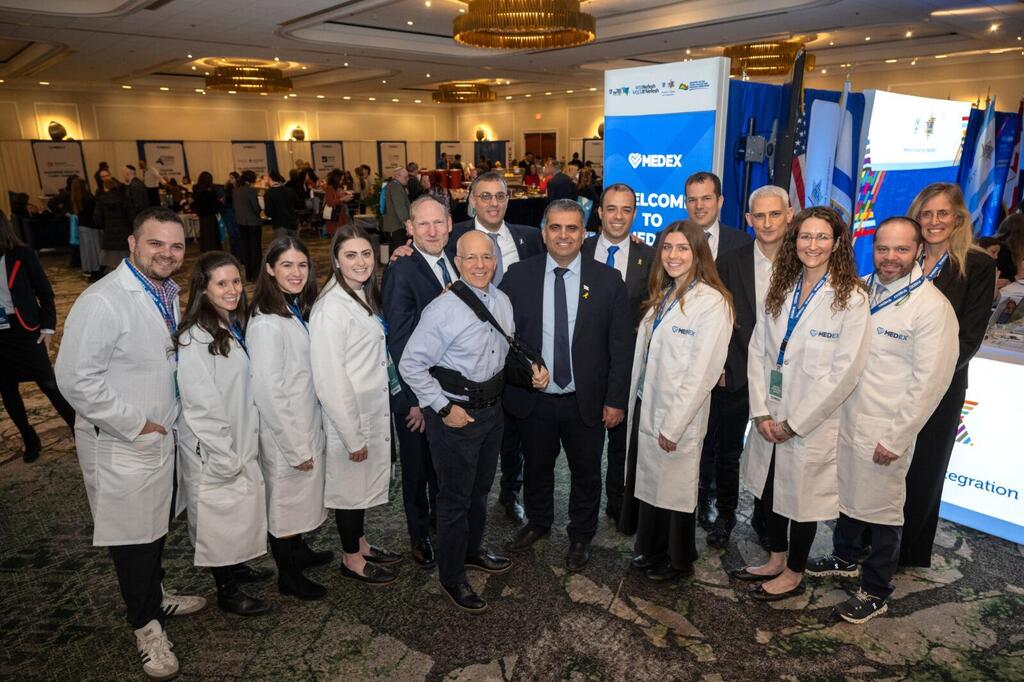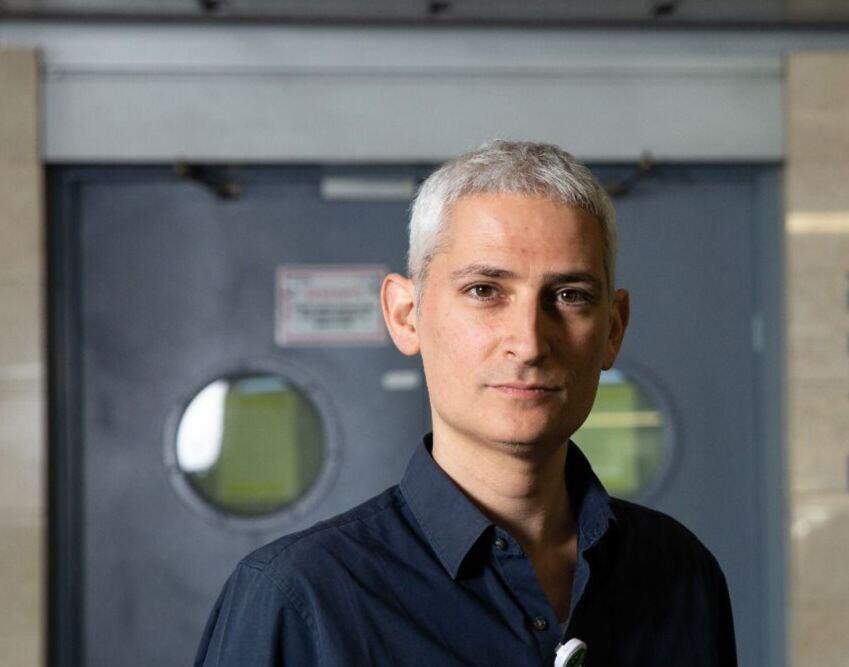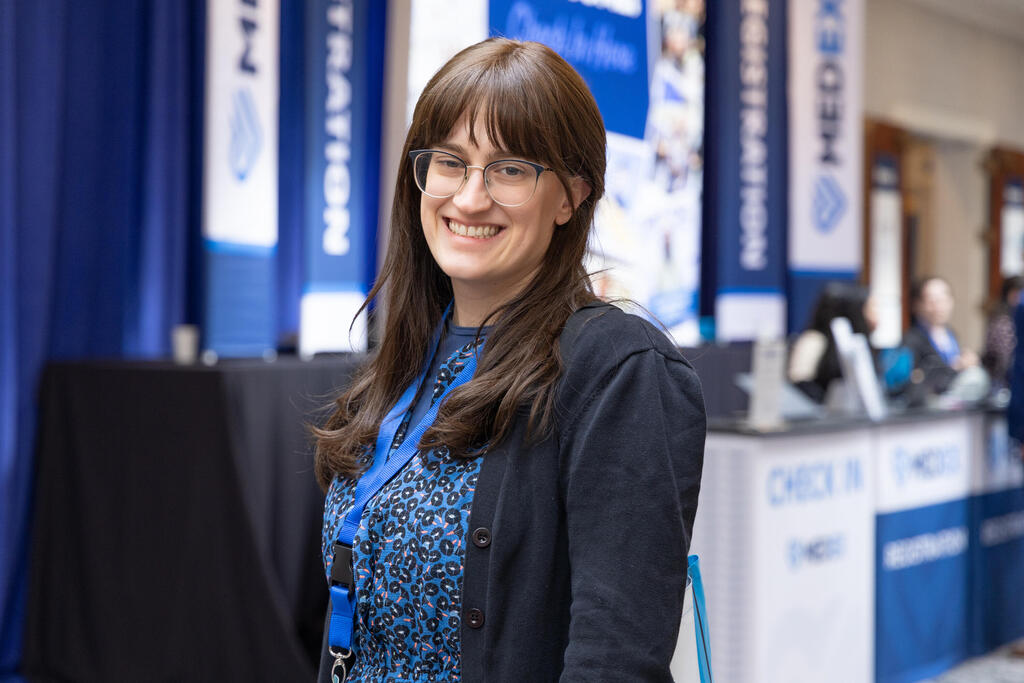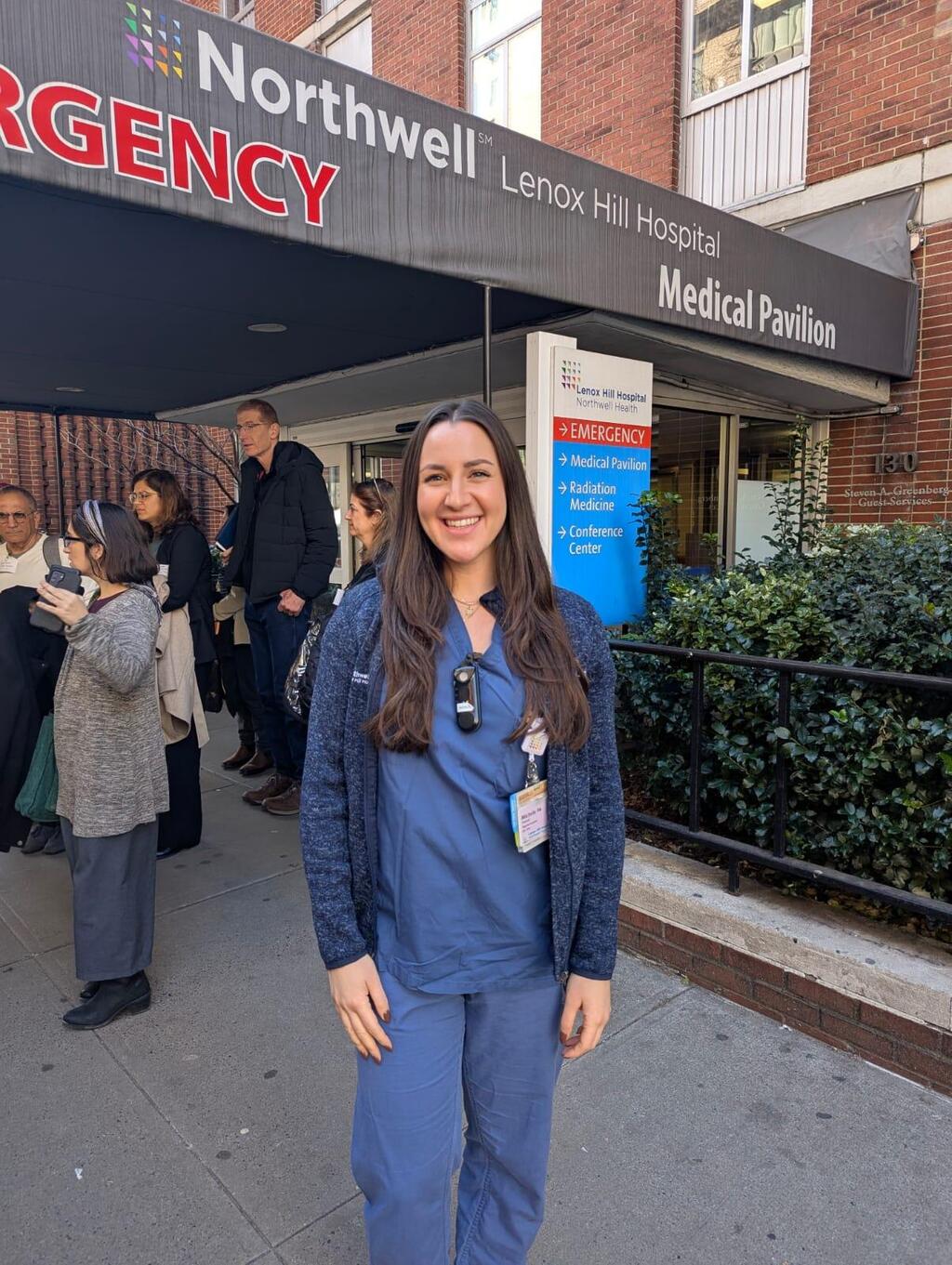Getting your Trinity Audio player ready...
Israel’s healthcare system is grappling with a growing physician shortage, a crisis expected to deepen in the coming years as veteran doctors retire and medical school admissions fail to keep pace with demand. Faced with these mounting pressures, health officials are turning to a model long used in the United States: physician associates.
According to the Health Ministry, nearly half of all doctors in the country are over the age of 55, with many set to retire in the next decade. At the same time, the number of new physicians entering the workforce is not sufficient to replace them. In 2000, Israel had 3.8 doctors per 1,000 residents; today, that number stands at just 3.1—a figure expected to drop further by 2035. The shortage is already straining hospitals and community clinics, with long wait times and a growing reliance on foreign-trained physicians to fill gaps.
The problem is particularly severe in Israel’s periphery, where doctor-to-patient ratios are significantly lower than in the central region. The Negev and Galilee have been hit hardest, with residents often forced to travel long distances for specialist care.
In response, health officials and policymakers are looking to the physician associate (PA) model, which has been used in the United States for decades to extend medical services. The plan would introduce trained medical professionals who can diagnose patients, prescribe medications and assist in surgeries—all under the supervision of a physician.
Israel has experimented with similar roles in the past, but this marks the first large-scale effort to integrate PAs into the healthcare system. Proponents say it could help alleviate pressure on doctors, reduce patient wait times and bring much-needed care to underserved areas.
While the initiative represents a major policy shift, its impact extends beyond Israel’s borders. For years, Jewish PAs considering Aliyah faced a harsh reality—Israel simply did not recognize their profession. That changed at MedEx NJ 2025, where, for the first time, physician associates were formally included in Israel’s Aliyah recruitment efforts.
Held in Teaneck, New Jersey, MedEx is a flagship initiative of the International Medical Aliyah Program (IMAP) led by the Ministry of Aliyah and Integration, Health Ministry, Ministry of Negev, Galilee and National Resilience and Nefesh B’Nefesh and in partnership with The Jewish Agency for Israel, the Marcus Foundation, the Gottesman Foundation, Jewish Federations of North America and The Azrieli Foundation and is designed to streamline the immigration and licensing process for Jewish medical professionals.
This year’s event broke attendance records, with over 500 doctors and healthcare professionals gathering to explore opportunities in Israel’s healthcare system. But the most groundbreaking development was the inaugural inclusion of PAs, a milestone that signals a turning point for Israel’s public health infrastructure.
According to Ronen Fuxman, director of the international medical Aliyah program at Nefesh B’Nefesh, the push to introduce PAs in Israel stemmed from an eye-opening realization.
“For years, physician associates have approached us, asking why the profession doesn’t exist in Israel,” Fuxman told Ynetnews at the event. “Once we studied the scope of their work in the U.S., we were astonished. PAs aren’t just assistants in the administrative sense; they’re highly trained, regulated professionals who function as ‘doctors minus.’”
Two years ago, Fuxman, along with Dr. Sefi Mendelovich, deputy director-general of the Health Ministry, embarked on a fact-finding tour of U.S. hospitals to study how PAs operate. After visiting multiple hospitals and seeing PAs in action, Dr. Mendelovich became convinced that the model could help alleviate Israel’s physician shortage.
“Under his full leadership, we navigated the legislative and regulatory hurdles,” Fuxman said. “For the first time ever, PAs can now apply directly to the Health Ministry for certification.”
'Hospitals in rural areas are eager to adopt PAs, as they face the most severe doctor shortages. Rural medicine is an area where PAs could have an especially strong impact.'
The next challenge, Fuxman explained, is ensuring that hospitals and clinics understand how to incorporate PAs effectively. Some of Israel’s leading hospitals have already expressed strong interest in integrating PAs—especially in emergency departments, where the physician shortage is most acute.
However, rural hospitals and clinics stand to benefit the most, as they struggle with severe staffing shortages. Fuxman highlighted the importance of peripheral hospitals in the Negev and Galilee, where PAs could provide critical care in underserved communities.
“There’s a lot of excitement, but beyond the major hospitals, hospitals in rural areas are also eager to adopt PAs, as they face the most severe doctor shortages. Rural medicine is an area where PAs could have an especially strong impact,” he said.
While the initial wave of PAs in Israel will be Olim from the U.S., Israel is already laying the groundwork for its first homegrown PA program.
The Council for Higher Education has approved Israel’s first PA programs, which will be housed within medical schools, not nursing faculties—a move meant to ensure that PA education aligns with physician training standards.
Within the next year, PA programs will launch at several institutions across the country and will follow a 2.5-year master’s degree format, designed to meet the highest international medical education standards.
“Two Israeli medical faculties have committed to training PAs,” Fuxman revealed. “This is the biggest sign that this profession is here to stay. PA training will be under a medical faculty, not a nursing school, ensuring it remains physician-led.”
To further support incoming PAs, Nefesh B’Nefesh is providing relocation assistance, job placement and community-building efforts, particularly in smaller cities looking to attract medical professionals. According to Fuxman, some localities, like Ofakim, are actively looking to bring in PAs as part of efforts to strengthen Gaza border communities.
'We’re not experimenting here, this is happening now'
For Dr. Mendelovich, the introduction of PAs is more than just a new profession—it’s a once-in-a-generation transformation for Israeli healthcare. But as with any major reform, integrating PAs into the system has required navigating bureaucratic hurdles, shifting long-held perceptions and ensuring proper implementation.
“I was just approached by an ophthalmologist from the U.S. who’s making Aliyah,” Dr. Mendelovich recalled. “He told me, ‘I wanted to shake your hand for what you did with the PAs.’ He’s a doctor himself, and he said Israel doesn’t yet realize how revolutionary this profession is.”
Dr. Mendelovich played a central role in pushing forward legislation that formally recognized PAs in Israel. In August 2023, the Knesset passed the PA law, clearing the way for the profession’s official regulation. “We know we’re heading toward a severe doctor shortage and increasing physician burnout,” he explained. “In the U.S., PAs help alleviate that workload while enhancing patient care. That’s exactly what we need in Israel.”
Unlike traditional medical careers in Israel—where a doctor is either an intern, resident or specialist—PAs follow a different path. Their scope of practice expands over time based on experience and supervision. To ensure patient safety and proper oversight, Israel has developed a digital tracking system: a supervising physician can update a PA’s profile with new privileges, allowing for a structured, step-by-step expansion of their responsibilities.
The biggest obstacle now? Awareness.
'These pioneering PAs will be living examples of how the system works. Their success will set the stage for the first Israeli-trained PA graduates in a few years.'
“One of the biggest challenges is that most Israeli doctors don’t know what a PA is,” Dr. Mendelovich admitted. “Only those who trained in the U.S. or did a fellowship there have worked with PAs. Those doctors immediately recognize their value and say, ‘Wow, we need this here.’ But doctors who trained only in Israel have never encountered them before.”
To address this, the first wave of U.S. PAs making Aliyah will serve as a model for the profession in Israel. “These pioneering PAs will be living examples of how the system works,” Dr. Mendelovich said. “Their success will set the stage for the first Israeli-trained PA graduates in a few years.”
However, with Israel’s first PA graduates not expected for another 3.5 to 4 years, the system must rely on American-trained PAs in the short term.
Dr. Mendelovich remains focused on the practical steps needed to ensure PAs become a seamless part of Israel’s healthcare system. In the coming months, the Health Ministry will finalize salary structures, to provide financial stability for incoming PAs; job placement, determining which hospitals will integrate PAs first and educational oversight, ensuring high standards for PA training.
“We’re not experimenting here,” he said. “This is happening now.”
'Less excuses to stay in the diaspora. It’s time to come home'
For Jewish PAs in the United States, moving to Israel has long meant leaving their profession behind. But now, with Israel officially recognizing PAs, that reality is changing. For some, this marks the beginning of a new opportunity; for others, like Ariel Siegel, it is the culmination of a decade-long struggle to integrate PAs into the Israeli healthcare system.
Rivka Sperber, an internal medicine PA at New York-Presbyterian Queens, has spent years debating whether to make Aliyah. For her, the decision was both professional and ideological, but the October 7 attack was the final push.
“If we're not going to make Aliyah now—when we're young, when we can still develop our professional lives—then we’re never going to go,” she said. Sperber, who plans to move to Israel with her husband and two young children within the next 18 months, is eager to see the PA profession develop.
“In the U.S., I’m one of thousands of PAs. In my department alone, there are 40 of us,” she said. “In Israel, I’d be part of something new. There are so many PAs who would love to move if only they knew there was a job waiting for them.”
Talya Shoshani, a labor and delivery PA at LIJ Medical Center in New York, echoed similar sentiments. With fluent Hebrew and deep family ties to Israel, she has always dreamed of making the move. But until now, she wasn’t sure whether she would have a place in Israel’s medical system.
“I do C-sections, manage patient care, prescribe medications and see patients independently in New York,” she explained. “Before, PAs in Israel weren’t doing nearly as much. I’m curious to see if I’ll have the same level of responsibility there.”
For both women, Israel’s recognition of the PA profession has transformed Aliyah from an ideological aspiration into a tangible career move.
And while they’re preparing for their first steps in Israel, Ariel Siegel has already spent over a decade working in the country. A PA for 24 years, he has spent the past 15 years advocating for the integration of PAs into Israel’s healthcare system. Originally from the U.S., he was part of a small group of North American PAs who received Israeli licensing through a pilot program run by the Health Ministry nearly nine years ago.
“I started working within the profession around 12 or 13 years ago,” Siegel explained. “But in an official capacity, it was only around nine years ago, when the Health Ministry launched a pilot program to train PAs. Since then, we’ve had three full courses of PAs trained in Israel. The second time they ran the program, they decided to license five already trained PAs from North America—four from the U.S. and one from Canada. I was one of them.”
Since then, Siegel has worked in the emergency department at Shaare Zedek Medical Center in Jerusalem, where he has seen firsthand the impact PAs can have on patient care and hospital efficiency.
“The vast majority of doctors were very welcoming,” he recalled. “Not every one of them fully understood the PA concept at first, but they were all for the idea. Maybe there were one or two holdouts, but once they saw how we worked, they quickly became familiar with our capabilities. The transition into the system was actually smooth and fantastic.”
Siegel pointed out that Israel’s hospitals had already been using a PA-like model—just without trained PAs. “The healthcare system in Israel recognized the need for PAs years ago,” he said. “Hospitals were taking fifth- and sixth-year medical students and employing them as ‘physician associates.’ Even though they weren’t legally allowed to call them that, and that became the name that they were using because the concept and the need were already there.”
But there was a major flaw in that system. “These medical students would only stay for a year or two before graduating,” Siegel explained. “Then they move on, and the hospital has to start over with a new set of people every year or two. But with PAs, you have experienced professionals who stay in the system long-term. That continuity helps doctors, nurses and most importantly, patients.”
'Doctors in Israel have been so overwhelmed with all the things that they need to take care of. But what if they had someone they trust, someone they’ve worked with for years, to help share the load? That’s what a PA can do.'
He compared it to the reason PAs were created in the U.S. in the first place nearly 60 years ago. “In American hospitals, every year you bring in a new team of residents. They start off by learning the system and that area of medicine. By the end of their training, they’re fantastic—but then they leave, and you bring in a new set of untrained or less trained residents. The idea of having a PA who can stay for decades is incredibly helpful. They know the system, work within it for years and ultimately help train new medical students and residents. So it's actually a very well-accepted thing.”
For Siegel, the introduction of PAs into Israel’s medical system is about more than just adding personnel—it’s about changing how hospitals function.
Get the Ynetnews app on your smartphone: Google Play: https://bit.ly/4eJ37pE | Apple App Store: https://bit.ly/3ZL7iNv
“Doctors in Israel have been so overwhelmed with all the things that they need to take care of,” he said. ”Patient care, administrative work, meetings—and they’re constantly being pulled in different directions at the same time. But what if they had someone they trust, someone they’ve worked with for years, to help share the load? That’s what a PA can do.”
And it’s not just doctors who benefit. “It's unbelievable how much the nursing profession appreciates the interactions, the close working relationship and the team-based approach with PAs,” Siegel added. “A nurse might have a situation where a patient needs immediate attention, but the doctor is stuck in a meeting or handling an emergency. Instead of scrambling to track down an available physician, they can come to the PA sitting at the station and say, ‘Can you take care of this?’ That team-based approach makes a huge difference.”
9 View gallery


Physician associates assist in a robotic surgery procedure, using advanced technology for precision and minimally invasive care
(Photo: Anupama Bedi)
Siegel also highlighted how PAs stepped up during the war, when many doctors were called up for reserve duty in the IDF. “PAs have been very helpful in filling in gaps during the war since so many from our medical staff have been called up to the reserves for extended periods,” he said. “At the same time, half of the PAs in my department were called up at different points to serve in the reserves as well.”
Having worked in Israel’s healthcare system for years now, Siegel has a message for American PAs thinking about making the move. “I would love everybody to be able to make Aliyah and to continue working in their profession,” he said. “Now we can tell people, ‘You don’t have to leave the profession you love.’ If you love working in medicine, why leave? We need dedicated medical professionals here. I think it would be very encouraging to see. Less excuses and reasons to stay in the diaspora. It’s time to come home, return to our country and help rebuild it over the coming years.’”
'I couldn’t join the army, so I joined the hospital'
Meanwhile, as part of efforts to familiarize Israel’s healthcare system with the profession, a delegation of senior Israeli health professionals visited Northwell Health’s Lenox Hill Hospital in New York City last week. The visit proved to be nothing short of eye-opening, as high-ranking officials and medical experts attended a special lecture on the PA profession given by Senior Director of Advanced Clinical Providers Anupama Bedi.
As Bedi detailed the critical role PAs play in the U.S. healthcare system, some Israeli officials could hardly hide their astonishment. Several were overheard quietly remarking that introducing PAs to Israel could revolutionize its medical system.
One point that particularly struck the delegation was the level of independence that PAs have in certain parts of the U.S., especially in rural and underserved areas. In some cases, PAs even run entire clinics without a doctor on-site—a concept virtually unheard of in Israel, where medical hierarchies remain rigid.
9 View gallery


Staff and visiting Israeli health professionals at Lenox Hill Hospital
(Photo: Ilan Levinsohn)
As discussions continued, it became increasingly clear that bringing the PA model to Israel wasn’t just an option—it was a necessity.
Few understand the potential of physician associates in Israel better than Michele Freund. A PA at Lenox Hill specializing in obstetrics and gynecology, Freund happened to be in Israel on October 7, 2023, visiting family and exploring job opportunities when war broke out.
“When I was there on October 7, everybody started volunteering,” she recalled. “I saw an email—‘Do you want to work at a hospital? Do you want to volunteer at a hospital?’ So I signed up.”
Within days, she found herself at Ichilov Hospital in Tel Aviv, assisting in the neurosurgery department—far from her specialty, but eager to contribute however she could.
“I was working under Dr. Jonathan Roth, who really understands what a PA is, so he felt comfortable having me there,” Freund said. “I wasn’t working in the full capacity of what I’m trained to do, but I was with the residents, assisting in any way I could—drawing blood, performing ultrasound-guided IVs, seeing consults. It was amazing to be there. I couldn’t join the army, so I joined the hospital.”
For Freund, the experience underscored exactly why PAs are needed in Israel. “A lot of doctors were called up for reserve duty,” she explained. “You need volunteers, and Israel has no shortage of people stepping up. But having that mid-level provider—someone who can step in even if it's not their specialty—helps keep things running smoothly during a crisis.”
However, many PAs who wanted to volunteer in Israel after October 7 were turned away simply because their profession was not recognized. “There were so many PAs in America who wanted to come help after the attack,” Freund said. “But because they did not know what to do with them, they weren’t allowed to volunteer.”
At the same time, while doctors from the U.S. went to volunteer in Israel, their PAs took over many of their responsibilities back home, ensuring that hospital operations continued without disruption.
Freund, whose father is Israeli, has Israeli citizenship and has always dreamed of moving to Israel. But until now, her profession didn’t exist in the country.
“The more the PA field becomes a reality in Israel, the more my ability to live and work there becomes a reality,” she said. “It’s hard to move somewhere where your profession doesn’t exist. But now, that’s changing. More than anything, I’m excited that this field is growing in Israel. As a PA and as a Jew, I think this is something important—not just for me, but for Israel’s healthcare system as a whole.”
- The writer was a guest of Nefesh B'Nefesh.








